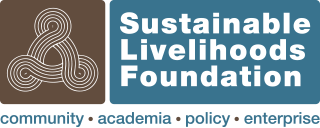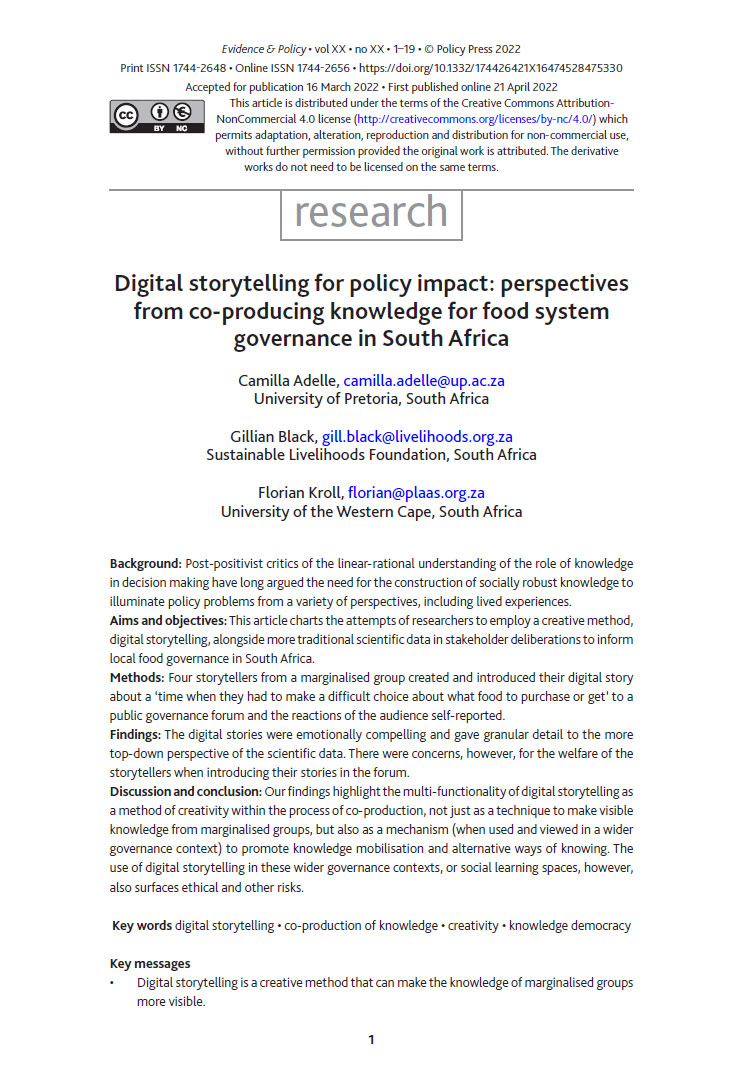This article charts the attempts of the research authors to work with digital storytelling (DST), alongside more traditional scientific data, in stakeholder deliberations to inform local food governance in South Africa. Four women storytellers from the urban township of Khayelitsha created digital stories about a ‘time when they had to make a difficult choice about what food to purchase or get’. The women presented their stories to a public governance forum and the multisector audience self-reported on their reactions to the granular and emotionally compelling experiences. Findings highlight the multi-functionality of DST as a method of creativity within the process of co-production, both as a technique to make visible knowledge from marginalised groups, and as a mechanism to promote knowledge mobilisation and alternative ways of knowing. Importantly the paper also discusses ethical challenges and other risks that come with sharing personal digital stories in wider governance contexts and social learning spaces

